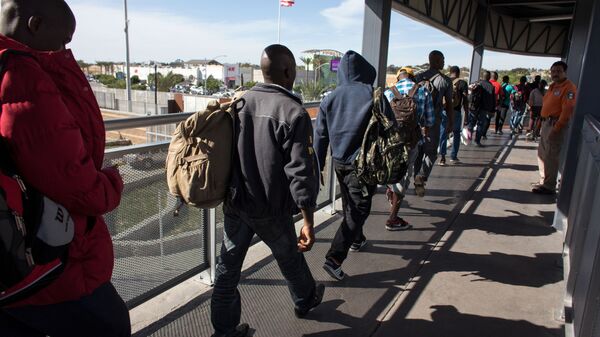André Sirois is wary of the consequences that the agreement could have for the signatory states. Mr Sirois has worked for the United Nations for 40 years and took part in the establishment of the International Criminal Tribunal for Rwanda (ICTR).
The lawyer first criticizes the lack of transparency by the United Nations in this case, as the agreement had remained a mystery until its adoption. Moreover, Mr Sirois thinks the UN had an interest in not giving out too much information so that the project would not be rejected along the way.
READ MORE: UN General Assembly Discussing Migration Pact (VIDEO)
The expert believes this is not an accident and some information had been intentionally left out.
"For 40 years I've been working with UN documents, using the UN library and IT services; and I couldn't access the document. Some researchers from the UN library as well as some journalists told me that they themselves had trouble finding the text of the agreement", he told Sputnik.
According to the lawyer, this was done intentionally in order to avoid any questions.
"The naivety of Canadians at the United Nations is generally recognised. Everyone at the United Nations knows the Canadians are always the first to support such good deals and pay the price afterwards", Sirois said.
READ MORE: Analyst on UN Migration Pact: 'It Basically Makes Migration a Human Right'
André Sirois believes that some states will never respect the agreement; and, among them, there are states with a population that exceeds the population of Quebec's capital.
"The pact has been signed by countries that don't accept migrants and those, who don't want to accept them anymore. For example, how come that the UAE no longer accepts migrants, even Muslims, but sends them to us instead? Those who don't want to have migrants dictate the rules to us. There is something outrageous in all of this", the former UN lawyer said.
According to Mr Sirois, the countries that will be forced to abide by the pact are those that already take in immigrants.
Views and opinions, expressed in the article are those of André Sirois and do not necessarily reflect those of Sputnik


